The COVID-19 pandemic is having a devastating effect on all people, particularly impacting girls and women and threatening to unravel decades of progress toward gender equality. While we continue to gather gender-specific data to pinpoint exactly where, how, and who the crisis is affecting, there are enough preliminary statistics that reveal how girls and women are enduring the worst of the pandemic’s impact. They are losing their jobs, educational opportunities, and access to critical health care in greater, and growing, numbers.
If governments, the private-sector, and civil society leaders act now by applying a gender lens to their COVID-19 response and recovery plans, we can begin an inclusive recovery that accelerates progress toward gender equality. We must act urgently to ensure the unique needs of girls and women are addressed in the pandemic response and beyond.
Women Deliver's Recommendations:
Apply a gender lens to all COVID-19 pandemic response and recovery efforts.
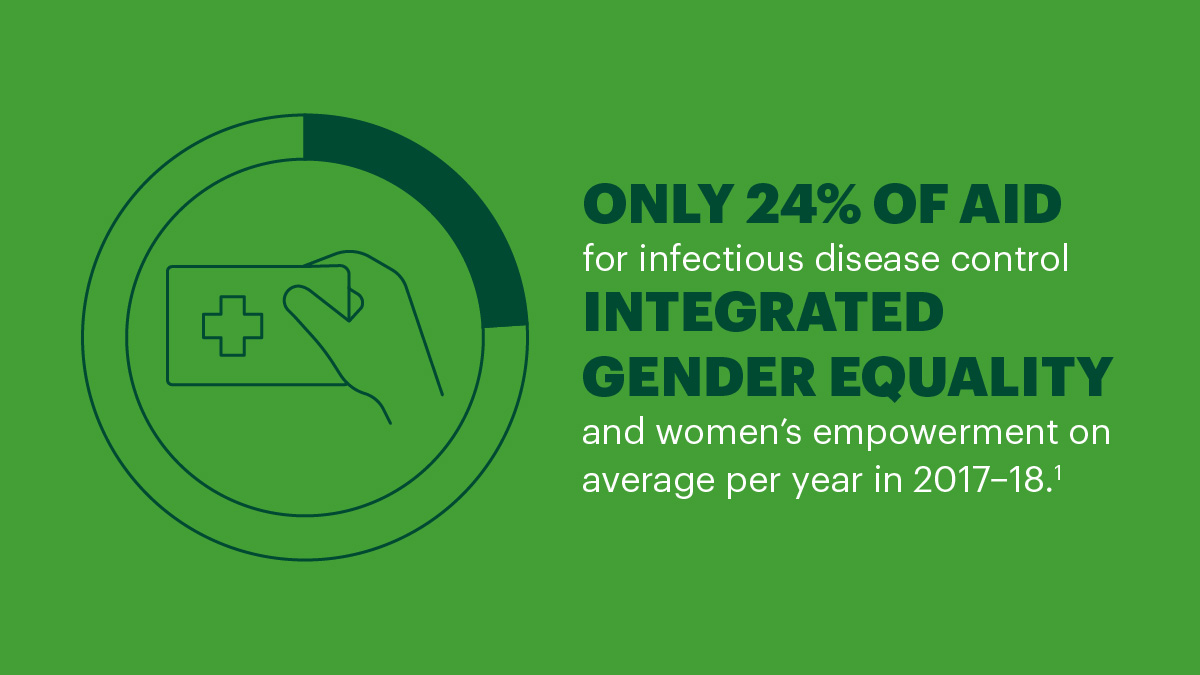
Leverage sex- and age-disaggregated data to inform and shape policies and investments for the COVID-19 pandemic response.
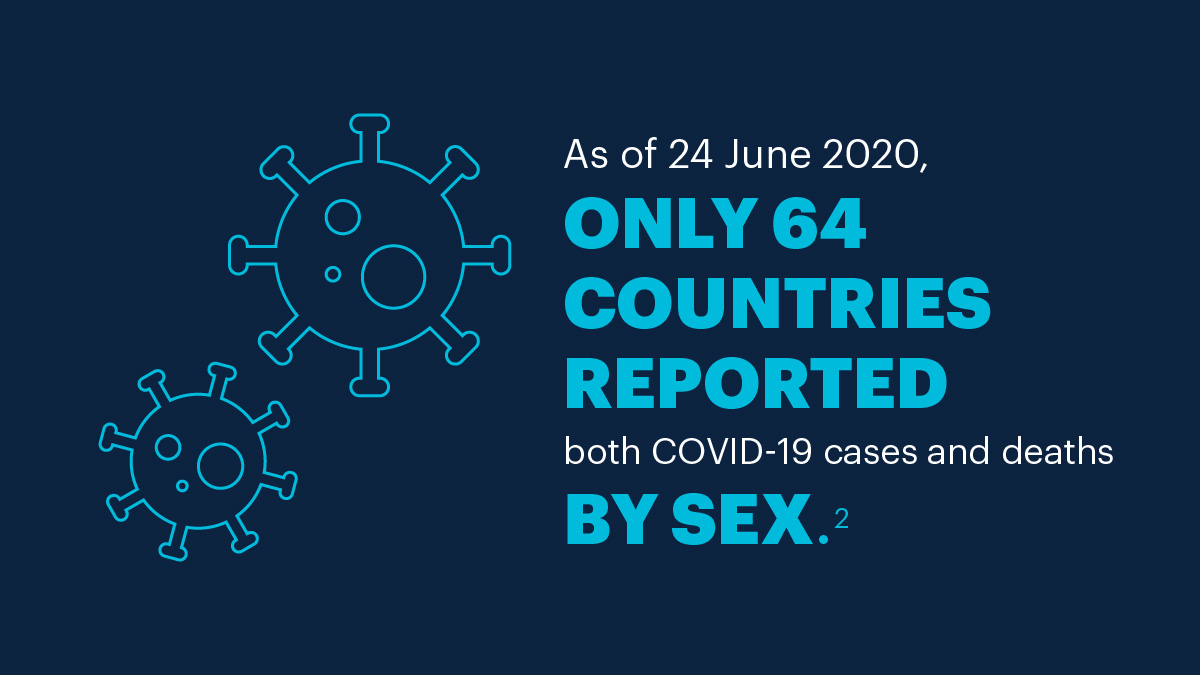
Meaningfully engage women and young people in pandemic recovery and response efforts through partnerships, funding, and leadership positions.
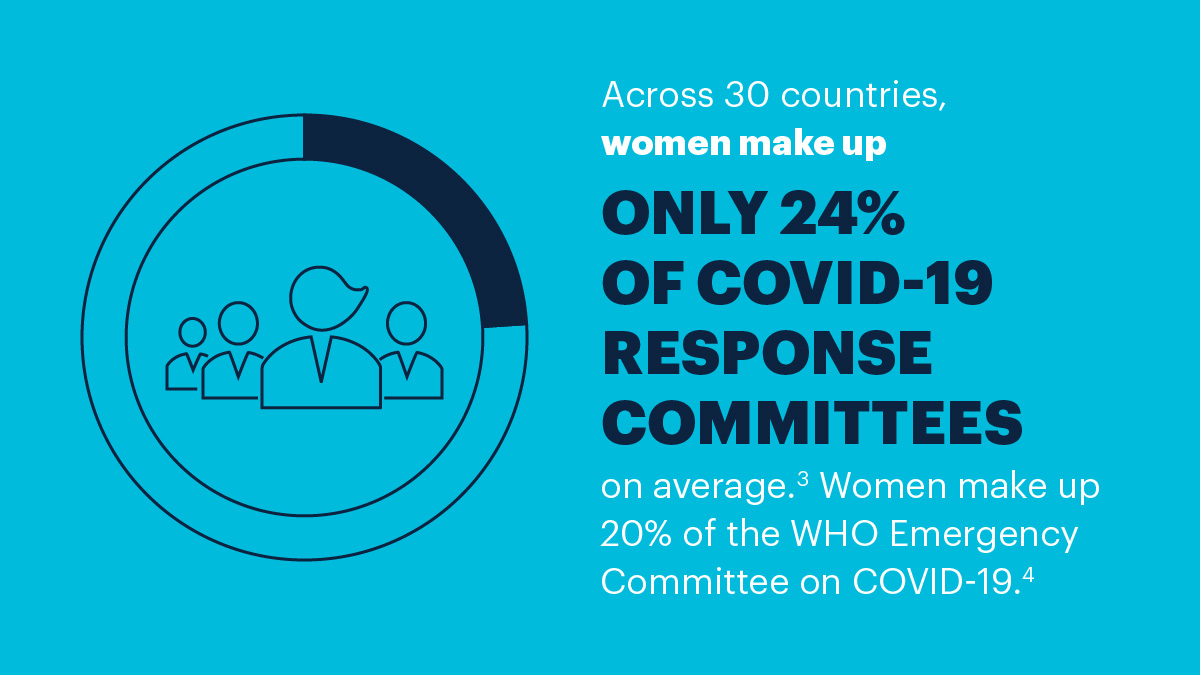
Protect and support those on the frontlines of the COVID-19 response — the overwhelming majority of whom are women.
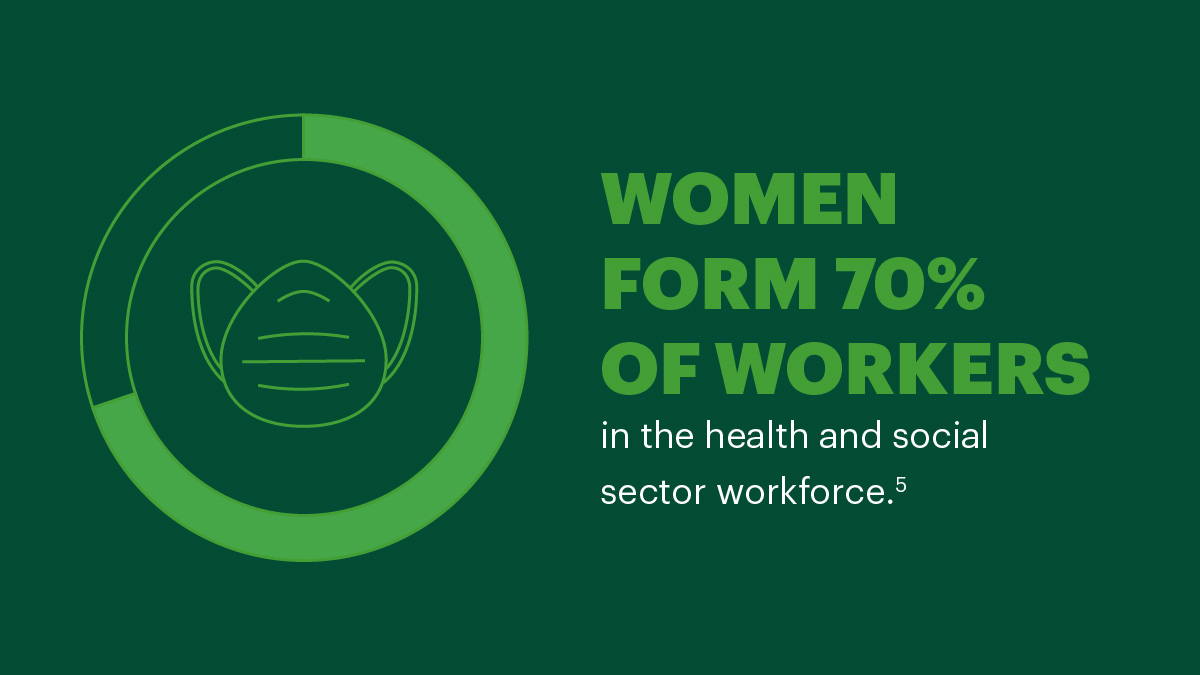
Safeguard maternal, sexual and reproductive health and rights (SRHR), the bedrock of gender equality, during the pandemic and beyond.
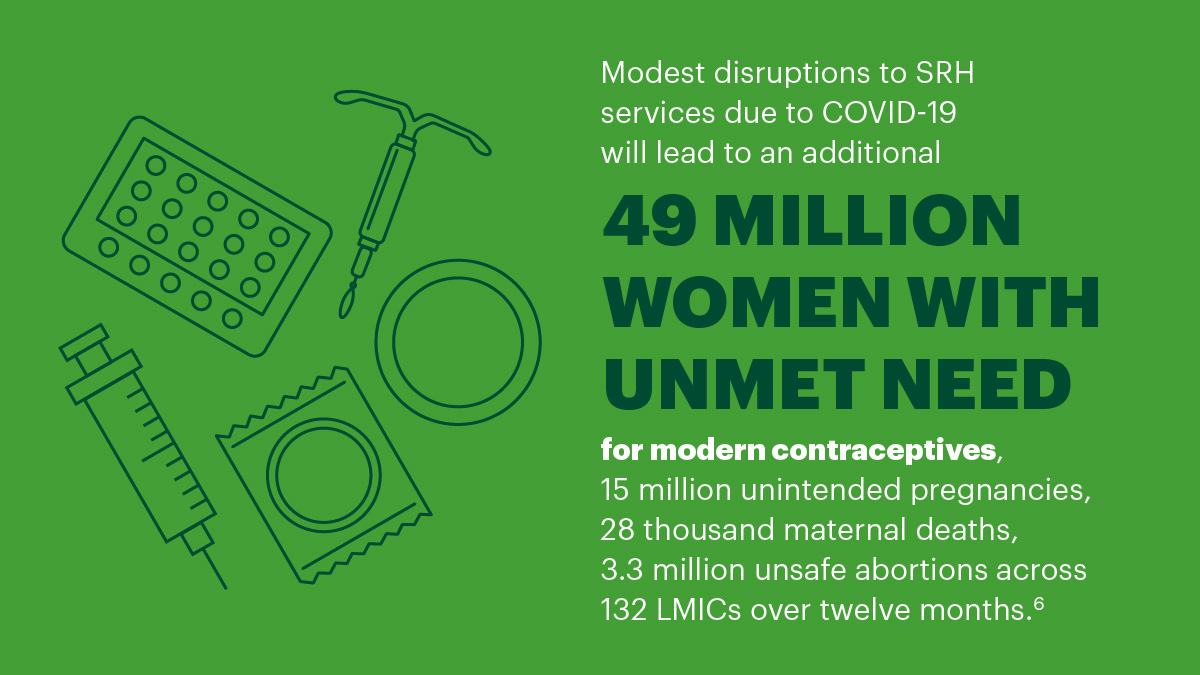
Prioritize gender equality in health systems strengthening. Health systems must be rebuilt to meet the needs and realities of all, including in times of crisis.
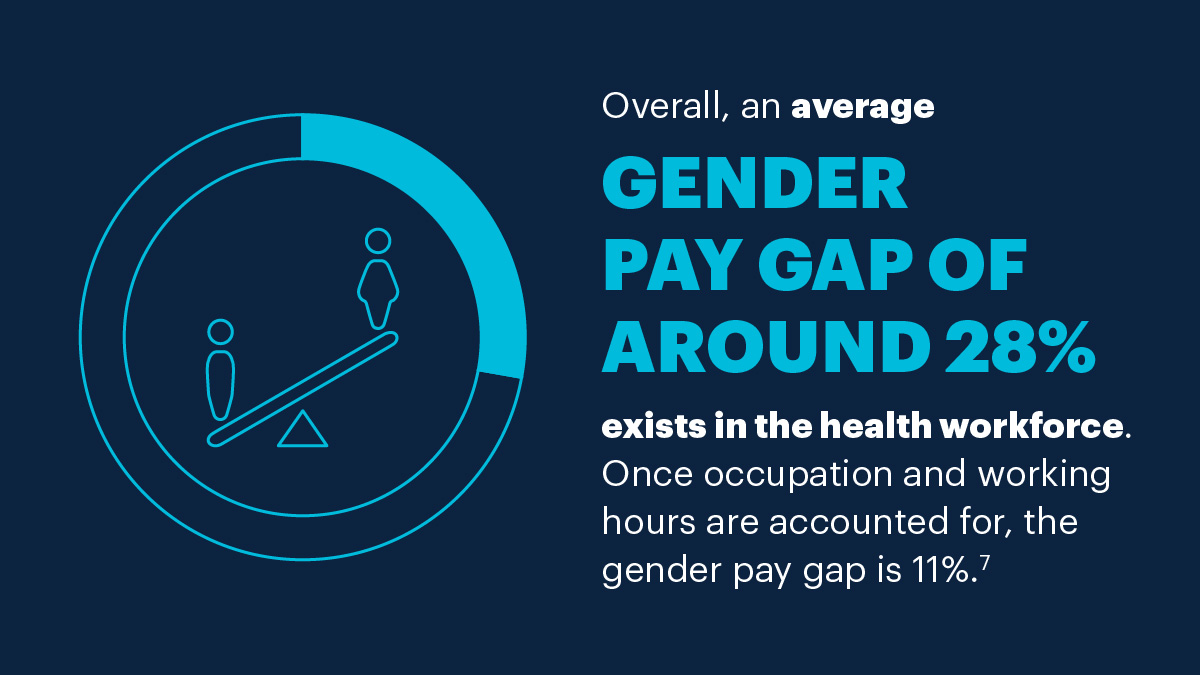
Uphold and fully fund services to reduce gender-based violence, likely worsened by quarantines and limited mobility that isolate women with their abusers.
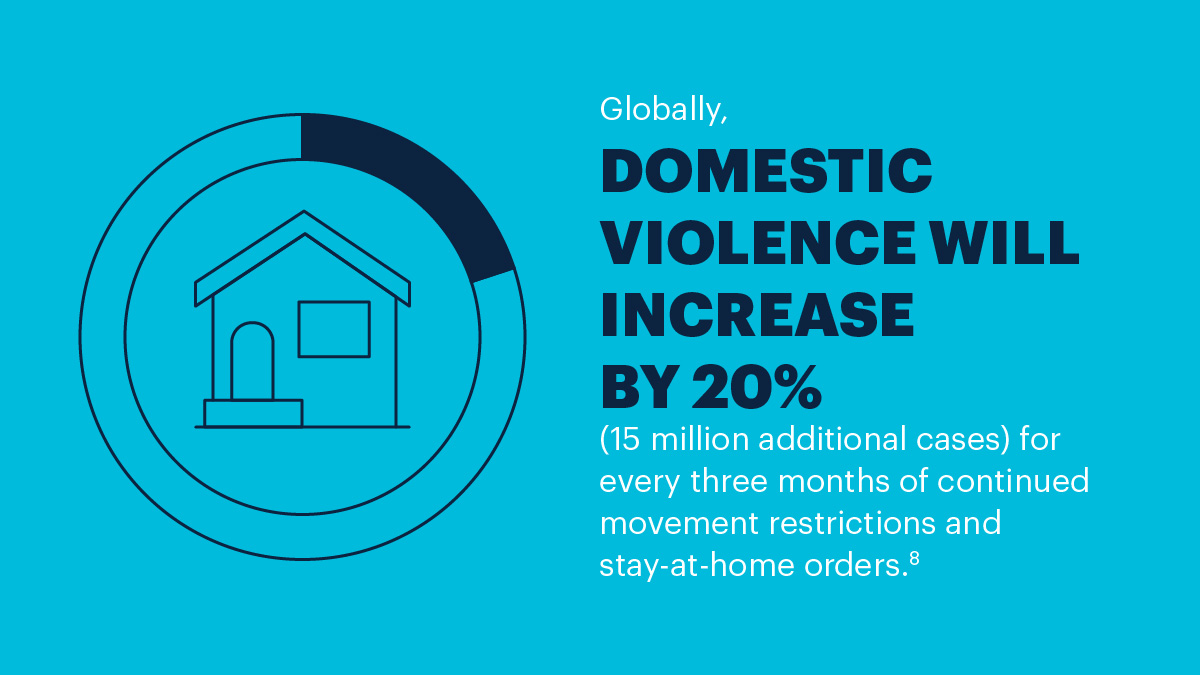
Maintain equitable access to education, which is foundational to girls’ and adolescents’ livelihoods and wellbeing, during the pandemic and beyond.
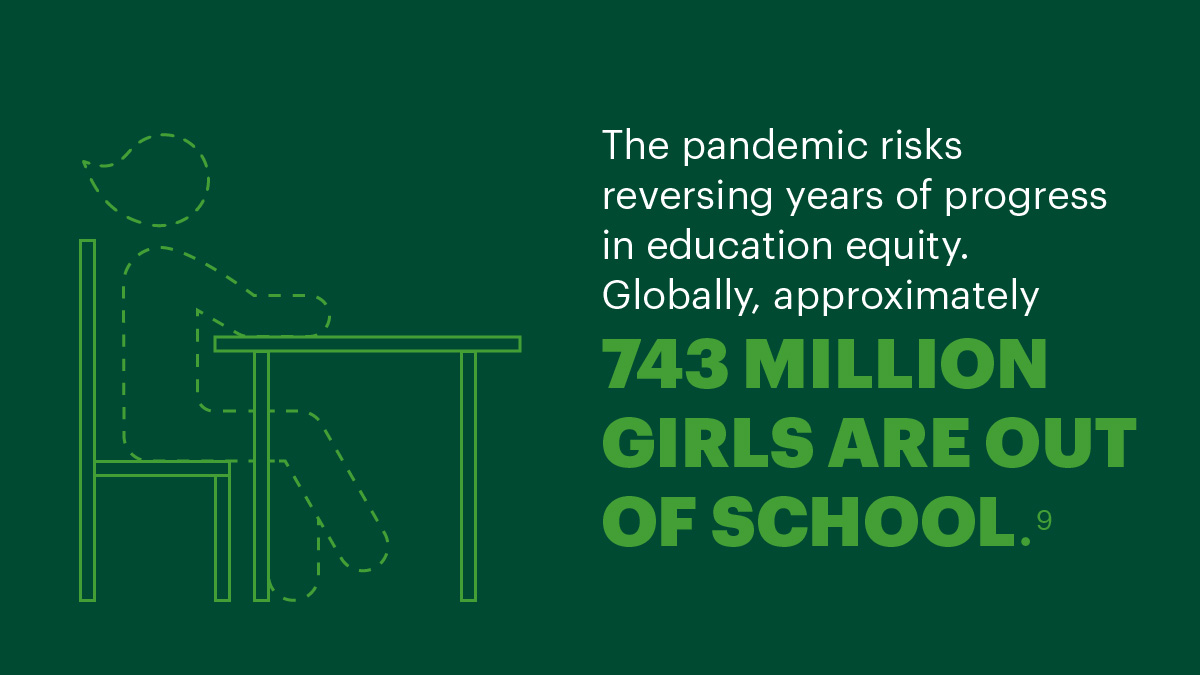
Protect women’s economic opportunity and livelihood. Emergency and stimulus packages as well as long term recovery investments must support and protect women and underrepresented groups.
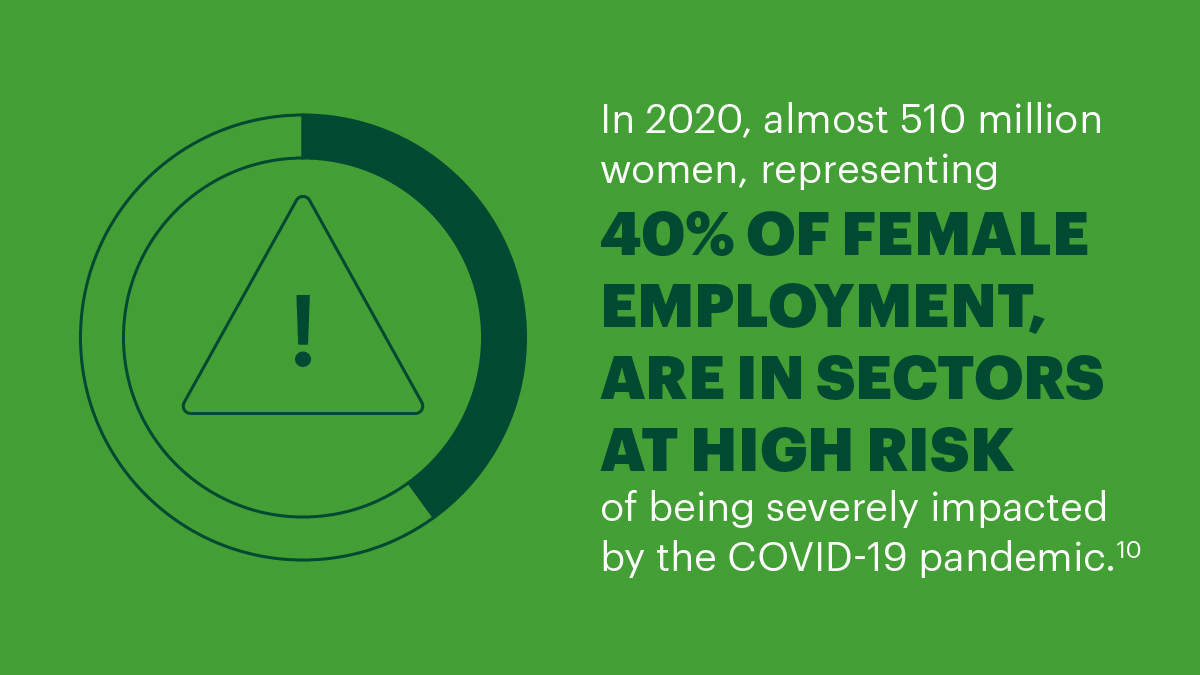
Challenge gender norms to encourage a better balance of household duties and care-taking during the COVID-19 pandemic.
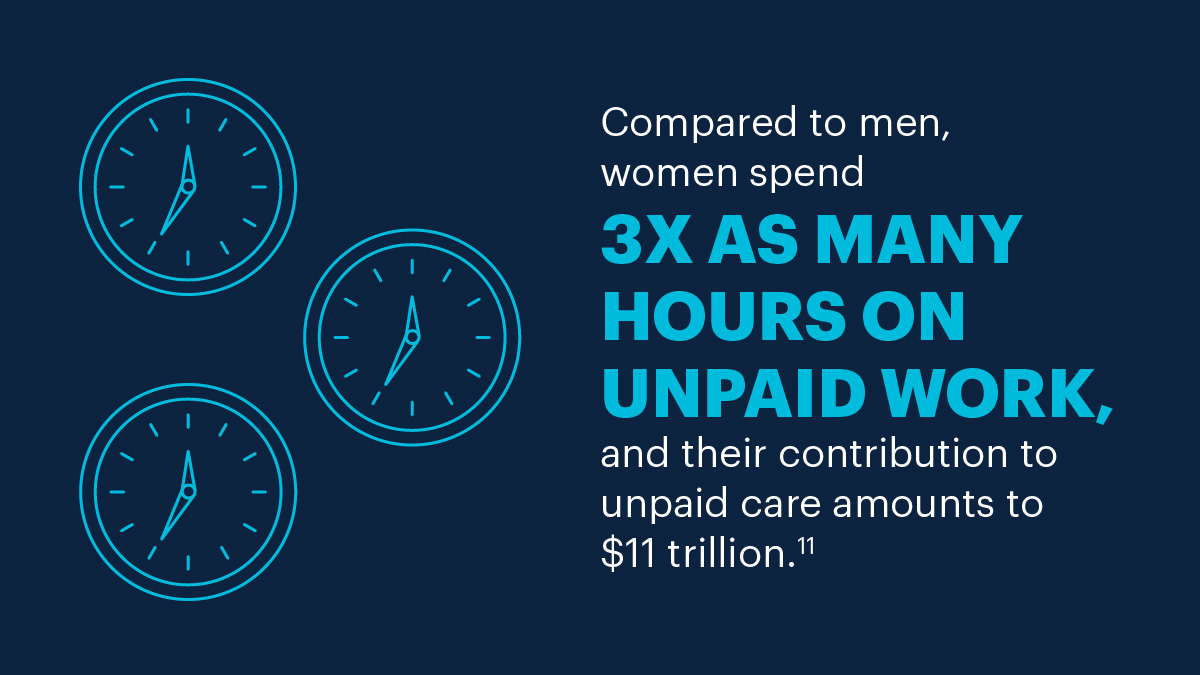
Girls and women are too often invisible to decision-makers because data and knowledge about them is either incomplete or missing. The COVID-19 pandemic highlights the need to fix this.
As the crisis intensifies around the world, it is clear that if we truly want to deliver health, wellbeing, and dignity for all, girls and women must be front and center in the emergency responses, in social and economic recovery efforts, and in how we strengthen our health systems post-pandemic. And we must safeguard the progress we've made towards gender equality, including hard won gains for sexual and reproductive health and rights. But none of this will be achieved without collecting, analyzing, and acting on comprehensive gender data.
Advocate alongside us by circulating these messages and statistics.
Citations:
- [1] OECD. 2020. http://www.oecd.org/development/gender-development/Aid-Focussed-on-Gender-Equality-and-Women-s-Empowerment-2020.pdf
- [2] UN Women. “COVID-19: Emerging gender data and why it matters.” Accessed May 20, 2020. https://data.unwomen.org/resources/covid-19-emerging-gender-data-and-why-it-matters.
- [3] CARE. “Where are the women? The conspicuous absence of women in COVID-19 response teams and plans, and why we need them.” 2020. https://insights.careinternational.org.uk/publications/why-we-need-women-in-covid-19-response-teams-and-plans
- [4] Women in Global Health. “Operation 50/50: Women’s Perspectives Save Lives.” Accessed May 20, 2020. https://www.womeningh.org/operation-50-50.
- [5] WHO. “Gender equity in the health workforce: analysis of 104 countries.” 2019. https://www.who.int/hrh/resources/gender_equity-health_workforce_analysis/en/
- [6] Guttmacher Institute. “Estimates of the Potential impact of the COVID-19 Pandemic on Sexual and Reproductive Health in Low- and Middle-Income Countries.” International Perspectives on Sexual and Reproductive Health, V46:73-76. April, 2020. https://www.guttmacher.org/journals/ipsrh/2020/04/estimates-potential-impact-covid-19-pandemic-sexual-and-reproductive-health
- [7] WHO. “Gender equity in the health workforce: analysis of 104 countries.” 2019. https://www.who.int/hrh/resources/gender_equity-health_workforce_analysis/en/
- [8] UNFPA. “Impact of the COVID-19 Pandemic on Family Planning and Ending Gender-based Violence, Female Genital Mutilation and Child Marriage.” (April 2020). https://www.unfpa.org/sites/default/files/resource-pdf/COVID-19_impact_brief_for_UNFPA_24_April_2020_1.pdf
- [9] UNESCO (based on UNESCO data) March 31, 2020. https://en.unesco.org/news/covid-19-school-closures-around-world-will-hit-girls-hardest; data found here: https://en.unesco.org/covid19/educationresponse
- [10] ILO. “The COVID-19 response: getting gender equality right for a better future for women at work”. May 2020. https://www.ilo.org/wcmsp5/groups/public/---dgreports/---gender/documents/publication/wcms_744374.pdf
- [11] UN Women. "COVID-19 sends the care economy deeper into crises mode". April 2020. https://data.unwomen.org/features/covid-19-sends-care-economy-deeper-crisis-mode


